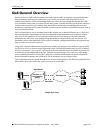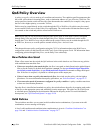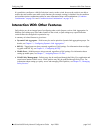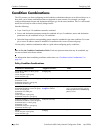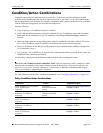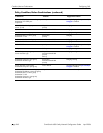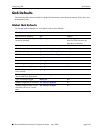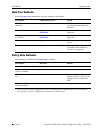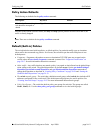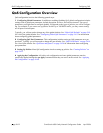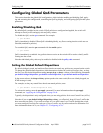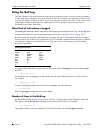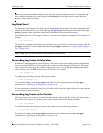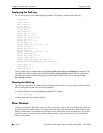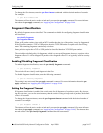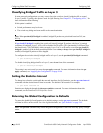
Configuring QoS QoS Defaults
OmniSwitch 6600 Family Network Configuration Guide April 2006 page 24-11
Policy Action Defaults
The following are defaults for the policy action command:
Note that in the current software release, the deny and drop options produce the same effect that is, the
traffic is silently dropped.
Note. There are no defaults for the policy condition command.
Default (Built-in) Policies
The switch includes some built-in policies, or default policies, for particular traffic types or situations
where traffic does not match any policies. In all cases, the switch accepts the traffic and places it into
default queues.
• Fragments—Fragments with unknown source or destination TCP/UDP ports are accepted on the
switch, unless the qos classify fragments command is entered. See “Fragment Classification” on
page 24-17 for more information about this command.
• Other traffic—Any traffic that does not match a policy is accepted or denied based on the global dispo-
sition setting on the switch. The global disposition is by default accept. Use the qos default bridged
disposition, qos default routed disposition, and qos default multicast disposition commands to
change the disposition as described in “Creating Policy Conditions” on page 24-24 and “Setting the
Global Default Dispositions” on page 24-13.
• The switch network group—The switch has a default network group, called switch, that includes all IP
addresses configured for the switch itself. This default network group may be used in policies. See
“Creating Network Groups” on page 24-35 for more information about network groups.
• Policy Port Groups—The switch has built-in policy port groups for each slot. The groups are called
Slot01, Slot02, etc. Use the show policy port group command to view the built-in groups.
Description Keyword Default
Whether the flow matching the
rule should be accepted or
denied
disposition accept



